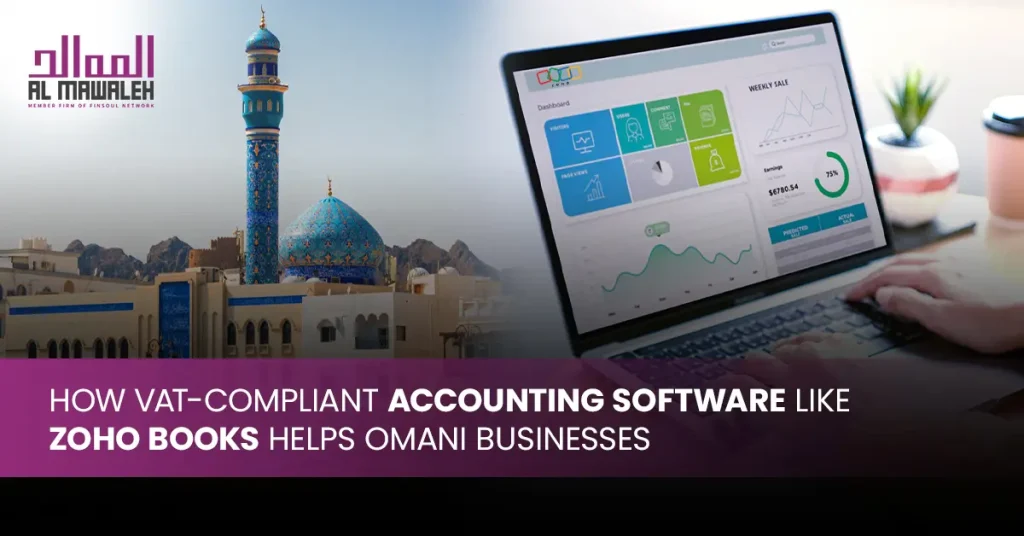- Welcome to Al-Mawaleh
- Majan building , Opposite CSK cafe ,Ghala,Muscat Governorate,Sultanate of Oman

In 2025, Omani businesses are facing a new reality — VAT compliance isn’t optional anymore; it’s essential. With the Oman Tax Authority (OTA) intensifying its focus on transparent reporting and timely VAT filing, companies that still rely on manual bookkeeping are finding themselves overwhelmed by errors, penalties, and lost efficiency.
Enter VAT-compliant accounting software — a game changer for SMEs and large enterprises alike. Among the many options available, Zoho Books Oman stands out as a trusted solution designed specifically to simplify financial management while ensuring seamless VAT compliance in Oman.
Let’s explore with Al Mawaleh how the right accounting software can help businesses save time, stay compliant, and boost financial accuracy.
Since the introduction of Value Added Tax (VAT) in Oman in 2021, businesses have been required to register, record, and report VAT transactions according to strict OTA guidelines.
However, many companies still struggle with:
As the Oman Tax Authority tightens digital compliance standards, relying on spreadsheets or outdated systems is no longer sustainable. This is where modern accounting software in Oman becomes indispensable.
The biggest advantage of VAT-compliant accounting software is automation. It takes care of time-consuming tasks that once required hours of manual work.
Here’s what the right software can do:
This level of automation and reliability is exactly why businesses in Oman are rapidly shifting to cloud-based solutions like Zoho Books.
Zoho Books Oman is one of the most popular accounting software solutions approved for VAT filing in Oman. Built with regional compliance in mind, it helps businesses manage invoicing, expense tracking, reporting, and tax filing all in one secure platform.
Here’s why Zoho Books is leading the way:
One of the most stressful parts of running a business in Oman is VAT filing — especially for companies managing multiple suppliers, customers, and transaction types.
Using Zoho Books or similar software simplifies this process through:
With these capabilities, even small businesses can handle VAT compliance in Oman confidently and without relying on expensive external accountants.
Beyond compliance, accounting software Oman empowers businesses with strategic benefits:
In short, accounting software isn’t just a compliance tool — it’s a growth enabler.
Maintaining VAT compliance in Oman isn’t just about avoiding penalties; it’s about building credibility. The Oman Tax Authority uses VAT records to assess a company’s transparency, governance, and financial reliability.
Businesses that stay compliant are better positioned to:
That’s why implementing a robust VAT-compliant accounting software solution like Zoho Books is one of the smartest investments an Omani business can make in 2025.
As Oman accelerates its digital transformation and tax modernization initiatives, businesses that embrace technology will always stay one step ahead.
By adopting tools like Zoho Books Oman, companies can automate VAT filing in Oman, ensure error-free reporting, and gain real-time visibility into their finances — all while staying fully compliant with national regulations.
📞 Contact Al Mawaleh today at +968 7733 8545
🌐 Visit: https://mawaleh.com
Al Mawaleh is a leading financial consultant company in Oman, delivering expert accounting services, professional auditors, and trusted financial solutions advisor support for businesses through top financial consulting firms expertise.